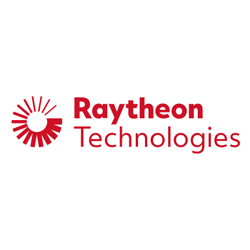Get On The Machine Learning Bandwagon With Google
- by 7wData

You can't help but notice the surge of interest in anything to do with Machine Learning. Now Google has launched a series of videos presenting Machine Learning recipes. And this adds to an existing heap of resources.
AlphaGo's historic victory against the Korean Go champion Lee Sedol has had consequences. One is a worldwide shortage of Go boards due to an upsurge of interest in the game, which is recognized as the most difficult to play. Another is that we all want to get involved with machine learning, amplifying a trend that has already been evident for a couple of years.
The latest way to gain some insight into what machine learning does and how you can use it comes from Josh Gordon, who presents a series of short (7 minutes) videos that aim to get you started with machine learning using two open source libraries, scikit-learn and TensorFlow, which Google open sourced having developed it in-house.
As yet there are only two episodes of the series available. In the first Josh briefly outlines what machine learning is and why its important. Describing it as a sub-field of Artificial Intelligence, he states:
"It's the study of algorithms that learn from examples and experience instead of relying on hard-codeed rules."
For the simple example to get started he goes on to discuss the problem of writing a program that could tell the difference between apples and oranges and then presents a recipe for supervised learning using a decision tree to create a classifier from examples which is coded in just six lines of Python with the help of scikit-learn.
Scikit is used again in the second lecture where he walks you through build and visualizing a decision tree using a real dataset - the classic Fisher's Iris Data:
These videos, more of which will be posted on YouTube, are not intended to teach machine learning algorithms - they are about applying them following its recipes. However there's plenty more online if you do want to know more.
On the Udacity platform you'll find another Google offering - a free 4-lesson course focusing on TensorFlow for Deep Learning from Vincent Vanhoucke, Principal Scientist at Google, and technical lead in the Google Brain team. It is recommended that you already have some understanding of machine learning prior to tackling this course and for this there's another free course on Udacity - Intro to Machine Learning, the pre-requisite for which is some Python and quite a lot of maths. This course, like the Google videos above, uses scikit-learn.
Both these courses are part of Udacity's Machine Learning Engineer Nanodegree which we reported on when it was first announced.
Udacity's Nanodegrees are intended to achieve job readiness which translates into an emphasis on understanding and using the tools required. This point is echoed in a 4/5 star review of Intro to Machine Learning provided on Course Talk by its most helpful reviewer Greg Hamel - a student who has submitted 114 course reviews having completed 105 courses with the majority being on Computer Science and related topics. He says:
Intro to Machine Learning is an accessible first course in machine learning that prioritizes breadth, high level understanding and practical tools over depth and theory. You won't be an expert in any of the topics covered in this course by the time you're done, but you'll have a good foundation to build upon. If you are interested taking a similar course with many interesting mini projects that uses the R programming language, try MIT's Analytics Edge on edX.
[Social9_Share class=”s9-widget-wrapper”]
Upcoming Events
Evolving Your Data Architecture for Trustworthy Generative AI
18 April 2024
5 PM CET – 6 PM CET
Read MoreShift Difficult Problems Left with Graph Analysis on Streaming Data
29 April 2024
12 PM ET – 1 PM ET
Read More




